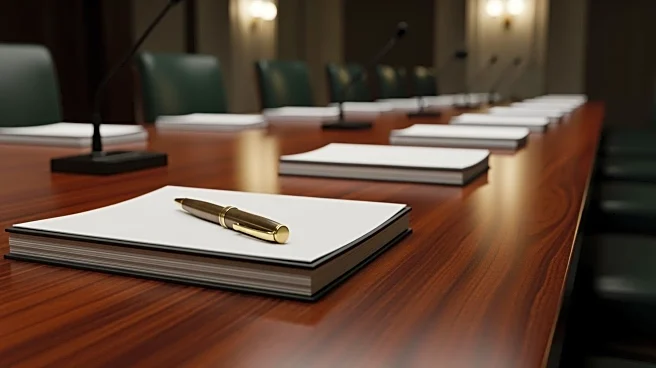What's Happening?
Senate Republicans have inserted a provision into a bill aimed at reopening the government, which allows senators to claim $500,000 in taxpayer-funded damages and legal fees. This move comes in response
to former special counsel Jack Smith's investigation into efforts to overturn the 2020 election, which involved seizing phone records from at least eight senators. The provision has sparked outrage among House Republicans, with Speaker Mike Johnson and Rep. Chip Roy criticizing it as self-serving. Despite the controversy, the House did not remove the provision from the bill to avoid sending it back to the Senate. However, Johnson plans to introduce a standalone bill to repeal these payouts.
Why It's Important?
The inclusion of these payouts in a must-pass bill raises concerns about lawmakers using legislative processes for personal gain. It highlights the tension between the legislative and executive branches, particularly regarding the collection of communications during investigations. The controversy underscores the need for transparency and accountability in government actions, as well as the importance of maintaining high standards for executive branch investigations involving legislative members. The situation could impact public trust in government and influence future legislative practices.
What's Next?
Speaker Mike Johnson intends to fast-track a standalone bill to repeal the controversial payouts, potentially as early as next week. Senate Majority Leader John Thune may face challenges in bringing this repeal to the floor, given some senators' interest in pursuing legal action. The situation may lead to further scrutiny of Jack Smith's investigation methods, with calls for public hearings to question his decision-making. The outcome could affect legislative-executive relations and set precedents for handling similar situations in the future.
Beyond the Headlines
The controversy raises ethical questions about the use of taxpayer funds for personal compensation in government investigations. It also highlights the broader issue of legislative accountability and the potential for self-dealing in political processes. The situation may prompt discussions on reforming legislative practices to prevent similar occurrences and ensure fair treatment for all citizens, regardless of their political status.











